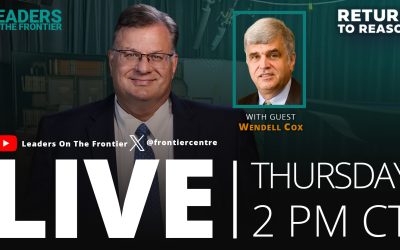I’ve been doing a bit of reading about poverty and the impact of welfare programs the past couple days and have come across some really fascinating, innovative ideas and research. One paper that really made me think was Behavioural Economics and Perverse Effects of the Welfare State. What this essay really drove home, that I hadn’t adequately reflected on previously, is the extent to which “conservative” critiques of the welfare state fly in the face of standard microeconomic theory. Here’s a quote from the paper:
Critics often argue that government poverty programs perversely make the poor worse off by encouraging unemployment, out-of-wedlock births, and other “social pathologies.” However, basic microeconomic theory tells us that you cannot make an agent worse off by expanding his choice set. The current paper argues that familiar findings in behavioral economics can be used to resolve this paradox. Insofar as the standard rational actor model is wrong, additional choices can make agents worse off.
The claim that welfare actually hurts its recipients really does not fit in with what we learn in our Microeconomics 101 textbooks. The authors make this important point clearly and persuasively. They also provide a thought provoking framework for thinking about the circumstances under which direct cash assistance may actually do more harm than good, whatever the models might say.
The authors wind up arguing, contrary to classical welfare economics, that there are behavioural reasons that welfare can harm recipients. They write:
In this paper, we have argued that common sense doubts about the efficacy of the welfare state are often isomorphic to some of the main blind spots behavioral economists have discovered. On a homework problem in intermediate micro, you can eliminate poverty with lump-sum transfers. In the real world, matters are not so simple.
Their argument suggests reducing social assistance payments may actually help the poor. It also suggests that “paternalistic” forms of assistance such as the direct provision of specific goods and services as opposed to cash transfers might be a smarter way to improve the utility of poor people. They do, however, sound this cautionary note:
It is wise to pursue paternalistic reasoning cautiously. (Glaeser 2006) There is a risk of redefining all behaviors you disapprove of as “self-control problems,” and all beliefs you disagree with as “judgmental biases.” The danger you pose to yourself is probably trivial compared to the danger of living under the veto of a randomly selected behavioral economist. A risk-averse policy-maker should think long and hard before directly ordering the poor about for their own good.
There is no model, no data set and no math. It’s an unusual economics paper, but one that really made me think.
I think it’s fair to say that usually it is the “economic right” that has greater faith in the consistency of neoclassical economic models than the “economic left.” It’s worthwhile to reflect on the fact that the commonly held view on the “economic left” that welfare usually increases the utility of recipients is rooted in the basic models of neoclassical economics whereas conservative criticism is ultimately rooted in at least a partial rejection of an important principle of welfare economics.


